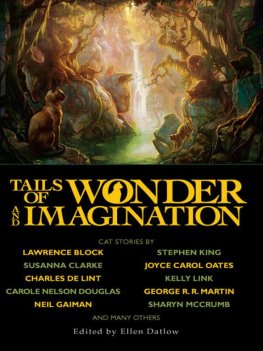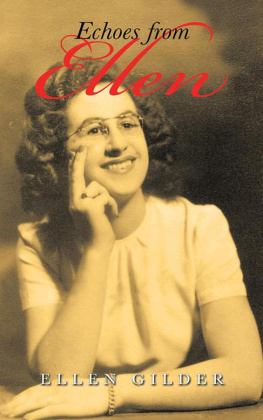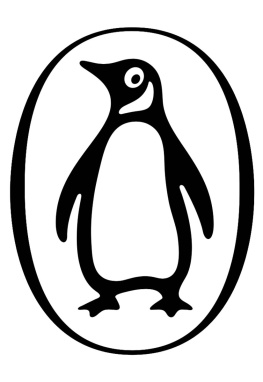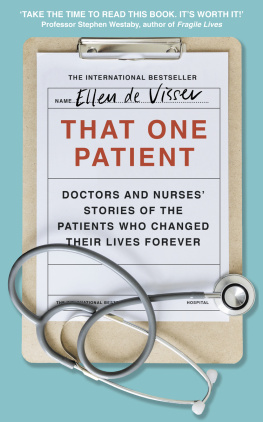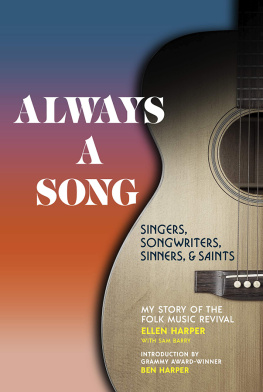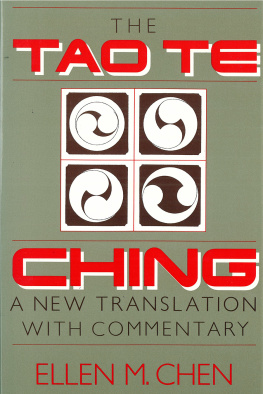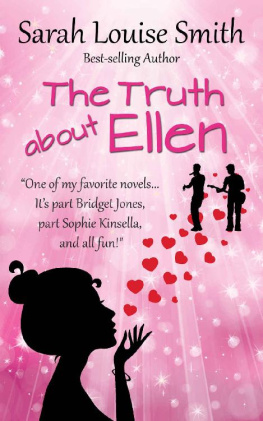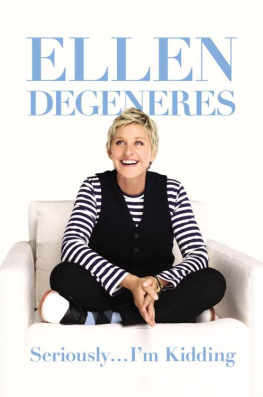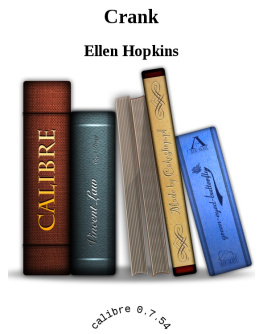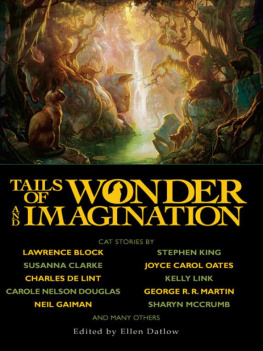Ellen Coyne - Are You There, God? Its Me, Ellen
Here you can read online Ellen Coyne - Are You There, God? Its Me, Ellen full text of the book (entire story) in english for free. Download pdf and epub, get meaning, cover and reviews about this ebook. publisher: Gill Books, genre: Detective and thriller. Description of the work, (preface) as well as reviews are available. Best literature library LitArk.com created for fans of good reading and offers a wide selection of genres:
Romance novel
Science fiction
Adventure
Detective
Science
History
Home and family
Prose
Art
Politics
Computer
Non-fiction
Religion
Business
Children
Humor
Choose a favorite category and find really read worthwhile books. Enjoy immersion in the world of imagination, feel the emotions of the characters or learn something new for yourself, make an fascinating discovery.
- Book:Are You There, God? Its Me, Ellen
- Author:
- Publisher:Gill Books
- Genre:
- Rating:5 / 5
- Favourites:Add to favourites
- Your mark:
- 100
- 1
- 2
- 3
- 4
- 5
Are You There, God? Its Me, Ellen: summary, description and annotation
We offer to read an annotation, description, summary or preface (depends on what the author of the book "Are You There, God? Its Me, Ellen" wrote himself). If you haven't found the necessary information about the book — write in the comments, we will try to find it.
Are You There, God? Its Me, Ellen — read online for free the complete book (whole text) full work
Below is the text of the book, divided by pages. System saving the place of the last page read, allows you to conveniently read the book "Are You There, God? Its Me, Ellen" online for free, without having to search again every time where you left off. Put a bookmark, and you can go to the page where you finished reading at any time.
Font size:
Interval:
Bookmark:

Are You
There,
God?
Its
Me,
Ellen
Are You
There,
God?
Its
Me,
Ellen
Ellen Coyne
Gill Books
For Peter,
for always helping me to keep the faith.
Contents
Prologue
W ell, you think you know a person. More than that, you think you know yourself. But everybody is full of surprises. The truth first came out, appropriately, over bread and wine.
I think, I said, I might be Catholic.
Two friends stared back at me, incredulous. Ash gathered on the ends of their cigarettes, suspended in the air in disbelief.
I was perched quite precariously on a bar stool. Across from me were these two very good friends. We were sitting in a pub smoking area around a barrel that doubled up as a table, on which ashtrays and empty white wine bottles were piling high. Picking over the remains of a cheeseboard, Id had just enough wine to make me very earnest, very emotional and treacherously honest. So I told them. And how Id said it was ridiculous, as though I was confessing to some problematic fetish or a heinous crime.
Still, though Catholic? I would have raised my eyebrows, too. I dont think anyone who knows me had ever heard me say a single good thing about the Catholic Church.
The Church to me was dark and oppressive. The Catholic Church meant abuse, misogyny, homophobia, power hunger and piousness. I had scrambled to get away from it as soon as I was independent enough to, and since then I had regarded it with suspicion from a distance. I thought the Church was a relic from another time, one that we would have to politely avoid looking at as it died in front of us. As my generation defined itself by progressive social movements and historic referendums, a huge chasm opened up between us and the Church. We didnt like the Church, and the Church didnt seem to like us either, and that suited us all just fine. I was full sure after I walked away from the Church that I wouldnt cast it so much as a backwards glance, never mind think about going back to it.
Yet here I was, blurting out loud some of the weird and secret feelings Id been having. That was the starting point of all of it. My first confession.
Chapter 1
T he night I made that little confession was right in the throes of a time when trust in and regard for the Catholic Church was at its lowest. That little vignette of us, three young women deep into a bar tab and deeper in conversation, was playing out everywhere. Across the country, people were talking about things theyd never talked about before and saying things theyd never said before. It was all part of what we were unironically calling the national conversation.
We were weeks away from the 2018 referendum on the Eighth Amendment a national vote to decide if Ireland was going to lift its constitutional near-ban on abortion after over 30 years. I was a journalist who had been covering the campaign for weeks and months and even years before. More pertinently, though, I am also a woman.
Almost everything from the month before the vote has blurred together like a fever dream. I know a lot of people endured those weeks rather than lived them. It felt like the country was in a state of convulsion. It was quite a painful thing.
Both sides believed the result would say something important about the kind of country we were, in different ways. Questions about the right to autonomy and the right to life are profound enough on their own, but this vote went further than that. People ascribed all sorts of other meanings to it related to Irelands history and Irelands modernity, to faith, society, women, rights and wrongs.
The week before, I had gone to a drag brunch with a couple of friends I knew very well and some women I didnt know at all. As we sat around a long table clutching our syrupy cocktails, one of the women, a total stranger to me, told us about travelling for her abortion. It was an emotional thing to listen to, but a terrifying thing as well. We had no idea at that point if anything was going to change and if a story like hers would ever not be normal.
These disclosures could happen at any place, at any time. I was following canvassers for a newspaper I worked for, and sometimes people would answer the door and just burst out crying. In a town in Offaly, I watched a woman with tears in her eyes take a Yes badge from a campaigner and pin it to the inside of her coat, where it would not be seen.
I have never had to make the choice those women had to make, but I was silly to think that those awful weeks leading up to the vote wouldnt have an effect on me. Its unsettling to watch your rights as a woman being put to a popular vote. At work, I wrote stories about all these women who offered to testify to the nation about what had happened to them under the Eighth Amendment. All these women and their personal tragedies were condensed into digestible, emotional headlines. It was like a national trial where women had to prove the trauma they had experienced was severe enough before the jury of us citizens would decide it had been wrong. These women werent even asking for a Yes for themselves they were asking for it not to happen to other people. And they had to ask! Afterwards, people talked about how we chose repeal by popular vote as a joyous or empowering thing. Though it never could have been done any other way, there was an element of putting it to a vote that felt kind of degrading to me.
Its easy to remember the version of Ireland in the square of Dublin Castle that was broadcast around the world, covered in the rose-tinted veneer of modernity and compassion. It felt like the scales had fallen from our eyes when we realised that many more people wanted change than we had been led to believe. A lot of people valued having a direct say on repeal, and many took heart in the fact that change came from the people. But the campaign started from the point at which women had to try to win or earn their rights from their fellow citizens by proving that having to travel for healthcare is degrading and wrong. That felt grossly unfair to the women themselves and also to those of us who might have never made the choice to travel. From interviewing women who told their stories in the years after the campaign, I know that the pain of what they went through in having to use their personal experience to campaign for a Yes almost tainted the result for them.
The referendum on the Eighth Amendment was credited with changing Ireland. It also changed me. The way that the Catholic Church aggressively campaigned for a No vote during the campaign changed the way I looked at religion. There had been over 30 years of debate over abortion law in Ireland. It had trundled along, peaking in ferocity over travesties like the X case or the death of Savita Halappanavar. The referendum campaign meant that the whole nation had to go through all of those arguments again, but faster and with more intensity. It was a high-stakes last dance for the groups that had been fighting for or against reform so ferociously for years. And the Catholic Church came out swinging.
Bishops and priests were righteous and unequivocal: Catholics had an obligation to vote No. Anti-abortion leaflets started to appear at the back of churches next to donation boxes and literature about pilgrimages. Priests started to use sermons to campaign and canvass for support for their side. I started to read about the things they had said. Bishop Kevin Doran said that this was the final frontier, that it would be easier to justify killing older people and those with disabilities after abortion. Archbishop Eamon Martin said that abortion was always evil and can never be justified. The Churchs position was absolutist, pontifical and relied completely on obedience over freedom of conscience.
Next pageFont size:
Interval:
Bookmark:
Similar books «Are You There, God? Its Me, Ellen»
Look at similar books to Are You There, God? Its Me, Ellen. We have selected literature similar in name and meaning in the hope of providing readers with more options to find new, interesting, not yet read works.
Discussion, reviews of the book Are You There, God? Its Me, Ellen and just readers' own opinions. Leave your comments, write what you think about the work, its meaning or the main characters. Specify what exactly you liked and what you didn't like, and why you think so.


